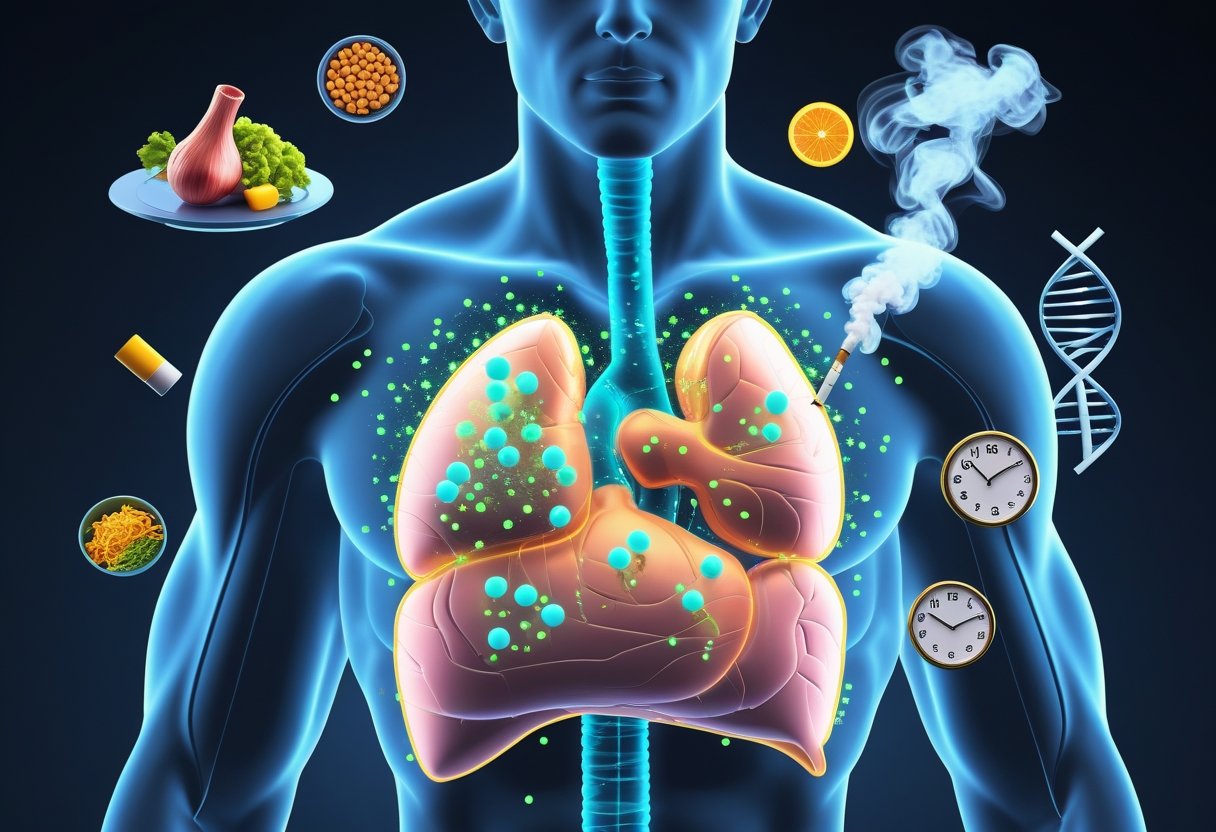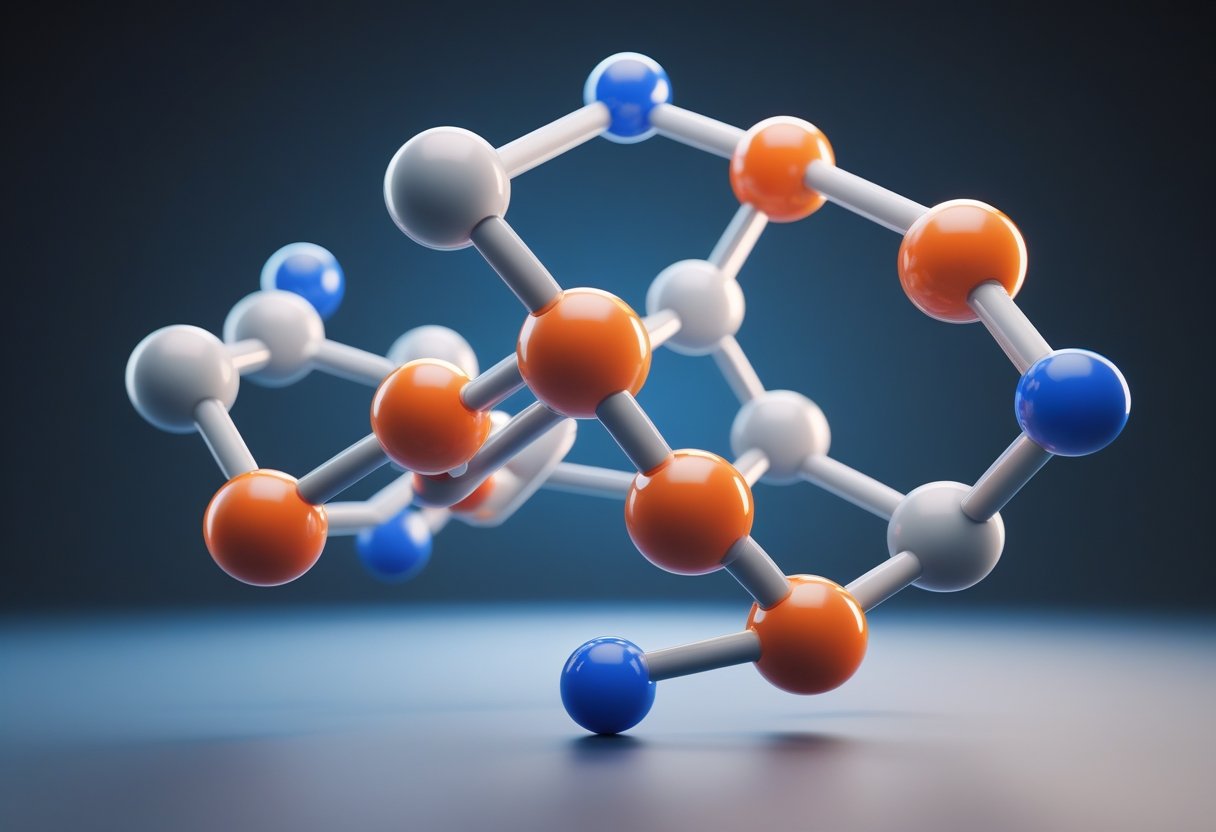Carnitine is a compound that helps the body turn fat into energy, supporting muscle movement and heart function. It is made naturally in the brain, liver, and kidneys, and is also found in certain foods like meat and dairy.
Many may not know its role in energy production or why it is essential for daily health.
Some people have lower carnitine levels due to genetic reasons or health conditions, which can cause muscle weakness or other problems.
Carnitine supplements are popular among those seeking extra support, especially for athletes and people with specific medical needs. Understanding how carnitine works can help readers decide if it is essential for their health.
Key Takeaways
- Carnitine is vital for turning fat into energy in the body.
- Low carnitine can cause muscle or heart problems in some people.
- Supplements are available but are not always needed for everyone.
What Is Carnitine?
Carnitine is a naturally occurring compound in the human body. It is essential for energy production and the breakdown of fats. Carnitine can be found in different forms and comes from both the body's own synthesis and the diet.
The Role of Carnitine in the Body
Carnitine plays a major role in moving long-chain fatty acids into the mitochondria, which are the “energy factories” inside each cell. Inside the mitochondria, these fatty acids are broken down to produce energy.
This energy is important for organs and tissues that use a lot of fuel, such as the heart, muscles, and brain. Without enough carnitine, the body could struggle to turn fat into energy efficiently, which can affect physical performance and heart health.
Carnitine also helps remove certain waste products from the cells, further supporting cellular health. Even though the body can make carnitine on its own, some people may need more, especially if they have certain health conditions.
Types of Carnitine
There are several forms of carnitine, but the main types are:
- L-carnitine: This is the most common form in foods and supplements. It is active in the body.
- Acetyl-L-carnitine (ALCAR): This type can cross the blood-brain barrier and may help with brain function.
- Propionyl-L-carnitine: It is used in some studies for heart and blood vessel health.
- D-carnitine: This form is not used in the body and can actually block the activity of L-carnitine.
Each type has its own uses and may be preferred for different health reasons. Most dietary supplements use the L-carnitine form because it is the most well-studied and easy for the body to use. Learn more about the different types of carnitine.
Natural Sources of Carnitine
Carnitine is made in the liver and kidneys, but most is stored in muscles, the heart, and the brain. People also get carnitine from foods, especially animal products.
A simple table shows some key sources:
| Food | Carnitine Content (mg per 100 g) |
|---|---|
| Beef steak | 56–162 |
| Pork | 24–40 |
| Chicken | 3–5 |
| Fish | 3–7 |
| Milk | 3–8 |
| Tempeh (plant) | 1–2 |
People who eat mostly plants or have certain health problems may be at higher risk for low carnitine levels. For more details on natural food sources and how the body absorbs carnitine, see this health professional fact sheet.
How Carnitine Works
Carnitine is closely linked to how the body uses fat for energy. It has a direct role in cell energy production, especially inside the mitochondria.
Carnitine and Fatty Acid Transport
Carnitine’s main job is to move long-chain fatty acids from the cell’s cytoplasm into the mitochondria. These fatty acids are stored in the body and need to enter the mitochondria to be used as fuel. Without carnitine, this transport process would not work well.
During this process:
- Carnitine binds to fatty acids in the cytoplasm.
- The carnitine-fatty acid complex travels through the outer mitochondrial membrane.
- Inside the mitochondria, the fatty acid separates from carnitine and is broken down to produce energy.
This step is critical for people who rely on fat as a major source of energy, such as during exercise or fasting. For more information, see the description of carnitine’s role in fatty acid transport at NIH’s Carnitine Fact Sheet.
Influence on Mitochondrial Function
Mitochondria are known as the powerhouses of the cell because they generate most of the body’s energy. Carnitine supports their function by making sure fatty acids can be converted into usable energy.
Inside the mitochondria, fatty acids go through a process called beta-oxidation. This step releases energy in the form of ATP, the cell’s main energy carrier. Without enough carnitine, this energy production pathway is less effective.
Proper mitochondrial function is important for organs with high energy needs, such as the heart and muscles. More detail about how carnitine helps mitochondria is available on WebMD’s article on L-carnitine.
Benefits of Carnitine
Carnitine is a compound that plays a role in energy production, especially by helping the body use fat as a source of fuel. It also supports several body functions, including muscle activity, heart health, and brain function.
Physical Performance Enhancement
Carnitine helps the body transport fatty acids into the mitochondria, where they are burned for energy. This process may help people exercise for longer periods and feel less tired. Some studies suggest that carnitine can help reduce muscle fatigue and speed up recovery after intense workouts by limiting muscle damage and soreness.
For those aiming to change their body composition, carnitine may assist with fat loss and muscle gain. Research shows it can help lower fat mass and increase muscle mass, making it useful for people involved in regular exercise or sports. These effects are most noticeable in those with lower natural carnitine levels, such as older adults or people with specific health conditions.
A summary of physical benefits:
| Benefit | Description |
|---|---|
| Reduced fatigue | Less tired during and after exercise |
| Faster recovery | Shorter healing time for sore muscles |
| Improved body composition | Can help increase muscle and reduce fat |
More information on this can be found on the Mount Sinai Health Library and NIH Fact Sheet.
Cognitive Support
Some research has linked carnitine with better brain function, especially in older adults. Carnitine helps protect brain cells from stress and supports the production of energy in brain tissue. This may lead to improvements in memory, attention, and mental clarity.
Studies have reported that people with mild memory problems or age-related mental decline sometimes notice clearer thinking and better recall when using carnitine supplements. There is also early evidence suggesting carnitine might help with mood and learning in certain cases, though more research is needed.
Most cognitive benefits appear more in older adults or in people with specific medical needs. More information about this is available in the Verywell Health guide.
Heart Health
Carnitine appears to have several positive effects on the heart, especially in people with heart conditions. It is important for heart muscle function, as the heart uses fat for much of its energy. Clinical studies point to carnitine’s ability to lower the risk of angina (chest pain), reduce irregular heartbeats, and even support people after a heart attack.
A study showed that taking carnitine supplements led to a 27% drop in the chance of death from any cause for people with heart disease. There was also a 65% decrease in dangerous abnormal heart rhythms, and a 40% drop in chest pain episodes. These changes can significantly help those with ongoing heart concerns. For more details, see the AAFP review on L-carnitine and the WebMD carnitine guide.
Deficiency and Risk Factors

Carnitine deficiency can cause serious health problems if not treated. It often presents with noticeable symptoms and can be seen in people with certain medical conditions or dietary limitations.
Symptoms of Carnitine Deficiency
Common symptoms of carnitine deficiency include muscle weakness, fatigue, and irritability. Some people may have low blood sugar, known as hypoglycemia, which can cause confusion, shakiness, or even fainting. In severe cases, heart problems like an enlarged heart or heart failure may develop.
Other signs can involve tiredness, lack of energy, and poor exercise tolerance. Some may also experience muscle pain or cramps, especially after activity. Children might show delayed growth or developmental delays. When these symptoms are noticed, a doctor may order lab tests to check carnitine levels. The right diagnosis helps guide treatment and prevent complications.
Causes of Carnitine Deficiency
Carnitine deficiency can be primary or secondary. Primary deficiency is usually caused by a genetic problem that affects how the body transports or processes carnitine. This is rare and shows up early in life.
Secondary carnitine deficiency is more common. It can result from liver or kidney diseases, which impair production or cause loss of carnitine through urine, especially in people on dialysis. Poor diet or poor absorption from conditions like digestive diseases or malnutrition also leads to low carnitine levels. Certain medications can reduce carnitine in the body as well.
Groups at Higher Risk
Some groups have a greater risk for carnitine deficiency. People with chronic kidney disease needing dialysis are at risk because the kidneys cannot save carnitine well, causing more to be lost in urine. Children and adults with genetic disorders affecting carnitine transport or metabolism are also at higher risk.
Individuals with digestive problems or malnutrition that prevent normal nutrient absorption can develop a deficiency. People with liver disease may also be prone to low levels because the liver is needed to make carnitine. Vegetarians or vegans who do not get enough carnitine from food might develop mild deficiencies, but this is rare. Athletes or people using certain medications could also be affected if their demands for carnitine rise.
Supplementation and Dosage

There are several types of carnitine supplements available, and each form may be used for different health needs. Dosage recommendations can vary based on the form of carnitine and the person’s age and health status.
Choosing a Carnitine Supplement
Carnitine comes in a few main forms, including L-carnitine, acetyl-L-carnitine, and propionyl-L-carnitine. L-carnitine is most common and often found in fitness supplements. Acetyl-L-carnitine is sometimes chosen for mental focus, while propionyl-L-carnitine is preferred for certain heart and blood flow issues.
When choosing a supplement, it is important to read the label and look for third-party testing for quality. Form and purpose should match the buyer’s main health goal. People who have certain medical conditions or take medications should ask a doctor before starting carnitine.
Recommended Dosages
Most adults take 1 to 3 grams of L-carnitine daily, either at once or split into two doses. Some clinical studies use up to 4 grams per day for short periods, but higher doses can increase the risk of side effects such as upset stomach or fishy body odor. Children are usually given much lower doses based on body weight.
Benefits and risks of carnitine depend on the amount taken. Long-term use should be supervised by a healthcare provider. According to Drugs.com and WebMD, dosages are best adjusted to the individual, with most adults seeing benefit at around 2 grams per day.
Potential Side Effects
Carnitine supplements can cause several adverse reactions in some people, especially with higher doses or prolonged use. Some issues can be mild, but others may need medical advice if they persist or become severe.
Common Adverse Effects
Many people taking carnitine supplements may notice minor stomach issues. These often include diarrhea, abdominal pain, nausea, and sometimes vomiting. Stomach upset is reported more often with higher doses. Symptoms like heartburn, indigestion, and constipation can also happen in both adults and children.
A unique side effect is a fishy odor in urine, breath, or sweat. This happens because of how carnitine breaks down in the body. Some users also report increased appetite or mild skin rashes, but these are less common. Although rare, seizures have been reported, mainly in people with existing seizure disorders. For a detailed list of these issues, see information from WebMD and Drugs.com.
Drug Interactions
Carnitine can interact with certain medicines, which may change how either the supplement or the medication works. People using blood thinners like warfarin should be careful, as carnitine could increase the risk of bleeding or alter the drug’s effect. It can also interact with thyroid medications, lowering their effectiveness if taken together.
Those on treatment for epilepsy should speak to a doctor before starting carnitine, as it could raise the risk of seizures. Not all medication interactions are well-studied, so anyone considering carnitine should tell their healthcare provider about all medicines and supplements they take. More details can be found in the Mount Sinai medical guide.
Recent Research and Future Directions
Current studies show that carnitine plays a role in different health conditions, from heart disease to metabolic disorders. Researchers continue to explore its effects and limitations.
Emerging Medical Applications
Carnitine has become a focus in new treatments for several diseases. Recent evidence suggests it can lower all-cause mortality and specific heart problems, such as ventricular arrhythmias and new angina, especially in patients with heart disease. For example, a major review found that L-carnitine use led to better heart health outcomes in certain groups.
There is growing interest in its potential use for metabolic conditions like non-alcoholic fatty liver disease (NAFLD). Studies have shown that carnitine may improve liver function and fat metabolism in these patients. Research also suggests a role for carnitine in inducing cell death in cancer cells, particularly colorectal cancer, though the findings are early.
Key applications being studied:
- Heart disease (cardioprotective effects)
- Fatty liver
- Supportive cancer therapy
Unresolved Questions
Despite promising results, several questions remain about carnitine. Long-term effects of supplementation are not fully understood. Some research warns prolonged use might change muscle metabolism, especially with extra carbohydrates, which could have unknown impacts.
It is still unclear which patients benefit the most from therapy. The optimal dose and duration for treating specific diseases also need more research. Scientists are exploring possible risks, such as whether carnitine affects cholesterol or increases certain byproducts in the body, which might not be safe. Experts agree more controlled trials are needed to answer these questions and guide safe use in the future.
Important ongoing issues include:
- Safe dosage levels
- Long-term side effects
- Impact on different patient groups
For more detail on ongoing research and concerns, see this health professional fact sheet on carnitine.
Frequently Asked Questions
L-carnitine supports how the body uses fat for energy and may help some people with exercise or certain health issues. People often have questions about its benefits, side effects, and the ways it impacts different groups.
What are the potential side effects of L-carnitine supplementation?
Some people taking L-carnitine report mild side effects like nausea, stomach upset, and diarrhea. Less common effects include a fishy body odor and muscle cramps. Studies have found that using carnitine supplements for several months may raise the risk of heart disease in some individuals. For more details, see this information about carnitine side effects.
How can L-carnitine benefit overall health and fitness?
L-carnitine helps the body change fat into energy, which can improve exercise performance in some cases. It plays an important role for the heart and muscles. Supplementing with L-carnitine might help people with certain medical conditions who need extra support turning fat into fuel. Read more on carnitine and fitness benefits.
In what ways is L-carnitine used for weight management?
Some people use L-carnitine to support weight loss plans by helping the body burn fat more efficiently. Evidence for weight loss effects is mixed, but it may help some people when combined with exercise. It has not been proven as a stand-alone weight loss solution. For more details, see this explanation of L-carnitine and weight management.
What specific advantages does L-carnitine offer for female health?
Research on L-carnitine and women's health is still limited. Some studies suggest it may help with energy levels and support some women with reproductive issues such as PCOS. However, more evidence is needed before clear recommendations can be made.
How might L-carnitine injections differ from oral supplementation?
L-carnitine injections are absorbed directly into the bloodstream. This means they may work faster or be more effective for people with problems absorbing L-carnitine through the gut. Oral supplements are more common and easier to use but sometimes less effective in people with certain medical conditions.
Are there any particular benefits of L-carnitine for male fitness and health?
Some research suggests L-carnitine may help with muscle recovery, exercise performance, and sperm health in men. Its ability to support fat burning and energy may also help active males. The benefits can depend on the individual's overall health and activity level.
Conclusion
L-carnitine is a nutrient that plays a role in energy production and fat metabolism. The body can make it, but it is also found in some foods and sold as a supplement.
Research shows that L-carnitine may provide a modest impact on body weight, BMI, and fat mass, especially for people with overweight or obesity. For more details about these findings, see the effect of L-carnitine supplementation.
Some possible benefits of L-carnitine include:
- Supporting fat metabolism
- Aiding mild weight loss in some groups
- Playing a part in brain function
Potential risks and side effects may occur, especially for those with certain health conditions. It is important to talk to a healthcare provider before starting any supplement. More details on safety and risks can be found in this article about mental health and carnitine risks.
Not all people will see the same results. Supplementation effects vary from person to person. Scientific opinions also note that the impact may be small and is not a replacement for healthy diet and exercise habits.

